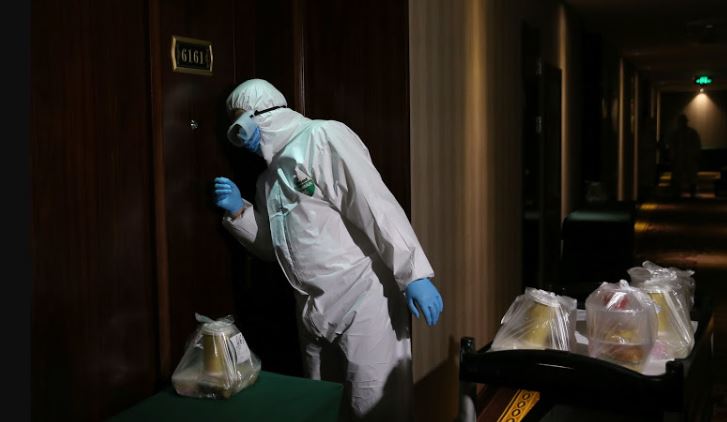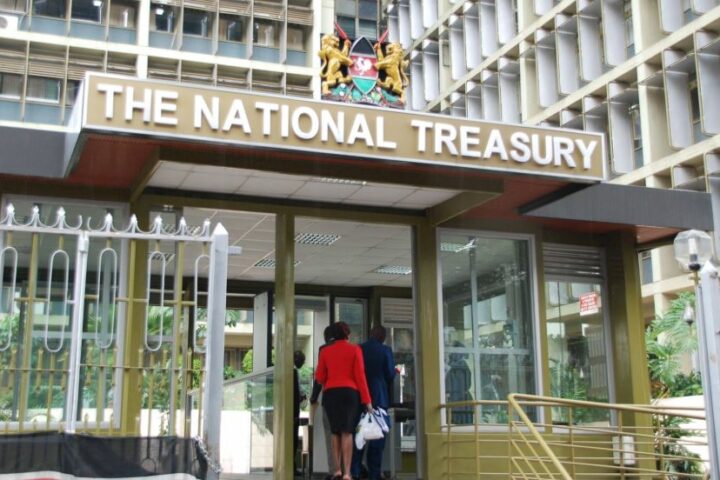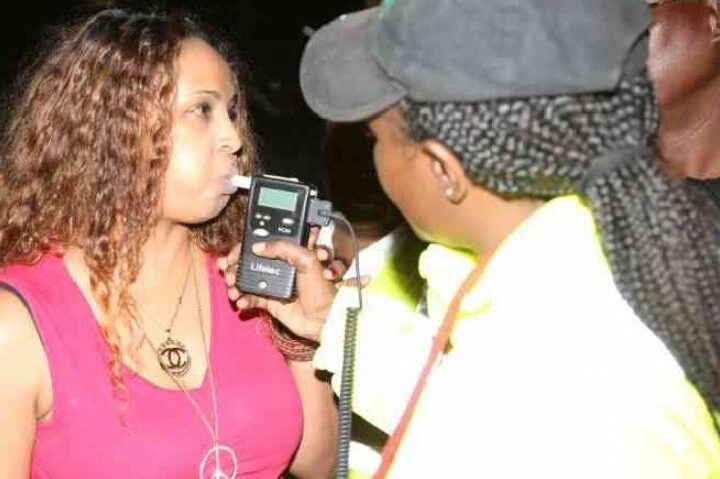 While Kenya is obviously miles off from China’s capacity to combat the Covid-19 o pandemic, self-quarantining in the East African country is still a joke compared to the Asian nation.
While Kenya is obviously miles off from China’s capacity to combat the Covid-19 o pandemic, self-quarantining in the East African country is still a joke compared to the Asian nation.
Since the first case of Covid-19 was confirmed in Kenya, there have been a number of instances where people who jetted into the country declined to observe quarantine procedures. This even prompted Health Minister Mutahi Kagwe to slam Kenyans for being undisciplined in a presser on Tuesday.
“We are suffering from cases of indiscipline; Kenyans are exhibiting a very indisciplined behavior, and this is going to cost us,” he stated.
There have also been some mishaps in the handling of passengers arriving at the JKIA as the government grappled with providing quarantine facilities.
Compared to China, Kenya can indeed take some valuable lessons on the quarantine procedure to contain the spread of Covid-19.
A Kenyan who lives in China spoke to the ‘Star’ and shed some light on the efficacy of the Quarantine procedure in the Asian nation.
Arrival At Airport
“I came back to China from Lagos last Sunday. I went through Hong Kong first for two weeks. So upon arrival at the Shenzhen Bay Port which is the only open land port between Hong Kong and China at the moment, they took my temperature,” Mary Suzanne told the publication via video call.
“Further up the line, you’re divided into groups of 10. Here they take your temperature and ask questions on your travel history,” she added.
“Depending on if you came from a high-risk or low-risk country you can then proceed to the immigration (low) and straight to the hospital (high).”
During this period the officials checking your temperature and travel history are all wearing hazmat suits.
“So I was in the low-risk category and my temperature was okay. I went through immigration and took a cab to my place,” she recounted.
Arrival At Apartment
Upon arrival at her apartment gate, she found a makeshift structure where again authorities take your temperature and give you a questionnaire to fill in regarding your travel history.
“Then you scan a QR code affiliated to your mobile phone service provider like in the case of Safaricom and Airtel back home,” Suzanne is quoted as saying.
The scanning helps the authorities to track one’s movement.
“After that they made me buy a thermometer to take my temperature every day and let them know in case it goes over 37 degrees,” she said.
After that she was instructed not to leave her apartment for 14 days and that in case she needs any help she can contact the officials.
“So the following day a cop comes to my house and asks about my travel history and takes my temperature. He proceeds to ask for airplane tickets (used) to back up my travel history story. I didn’t have them because I threw them away so I had to provide screenshots of flight reservation emails,” she said.
“Then, he asks me to sign a quarantine commitment letter. If I didn’t go through with the 14 days quarantine then I would be persecuted.”
Door Locked From Outside
After all that, they put tape on her door to alert her neighbours that she is on self-quarantine. Her door is locked from outside and she is not allowed to leave until the 14 days are over.
“So now if I need food or any other stuff I have to order it online. Then the delivery guys bring it to my apartment gate where the security guard brings it up to my apartment with mask and gloves on,” she says.
“If I need garbage thrown out I have to contact the apartment management and they pick it up.”
Suzanne is nearing the end of her quarantine and noted that she likes the quarantine procedure.
“I can’t leave until the 14 days are over and I test negative. It’s been 10 days now, I’m waiting to see what happens next,” she said.
“Actually, I like it this way. It’s the only way they can curb this thing. It’s always better to be safe than sorry. This way you know you are safe.”






